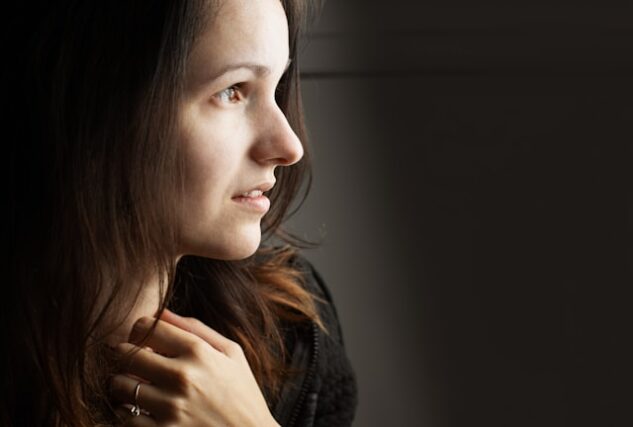Are you overly preoccupied with what everyone thinks of you? Maybe you second-guess your outfits, replay conversations in your head, or feel a knot in your stomach when someone looks at you for too long. We all have moments of self-doubt, but if these feelings are taking over your life, it could be a sign that you’re a little too self-conscious. Let’s look at some tell-tale signs that you might be overly concerned with other people’s opinions.
1. You apologise excessively, even for things that aren’t your fault.

A simple “excuse me” when you bump into someone is normal, but if you find yourself apologising for the weather, someone else’s bad mood, or even for existing, it could be a sign of deep-seated insecurity. You might feel like you’re constantly taking up too much space or causing inconvenience, even when you’re not.
2. You need a lot of reassurance from other people.

“Do I look okay?” “Was that the right thing to say?” If you’re constantly fishing for compliments or chasing approval from other people, it’s a sign that you don’t trust your own judgement. You might be afraid of making mistakes or being judged, so you rely on external validation to feel good about yourself.
3. You overanalyse your interactions with people.

After a conversation, do you replay it in your head, dissecting every word and gesture, searching for hidden meanings or signs of disapproval? This can be exhausting and lead to anxiety. You might be so focused on how you came across that you miss out on the actual connection with the other person.
4. You’re overly concerned with your appearance.

We all want to look our best, but if you spend hours in front of the mirror, obsessing over every perceived flaw, it could be a sign of body dysmorphia or a deep-rooted insecurity. You might feel like you’re never good enough, and your self-worth becomes tied to your looks.
5. You avoid putting yourself out there.

Do you shy away from opportunities to share your talents, speak your mind, or try new things? Maybe you’re afraid of failure, rejection, or simply being judged. This can hold you back from reaching your full potential and experiencing all that life has to offer.
6. You assume the worst in every situation.

If someone doesn’t text you back right away, do you automatically assume they’re mad at you? If someone cancels plans, do you think it’s because they don’t like you? This negativity bias can stem from low self-esteem and a fear of rejection. Try to challenge these negative assumptions and consider alternative explanations.
7. You’re constantly comparing yourself to everyone around you.

Thanks to social media, we’re constantly bombarded with images of seemingly perfect lives. It’s easy to fall into the trap of comparing yourself to other people and feeling like you’re coming up short. Remember, everyone has their struggles and insecurities, even those who appear to have it all together.
8. You have difficulty accepting compliments.

When someone compliments you, do you brush it off, downplay it, or even deflect it back to them? This might seem humble, but it can also be a sign of low self-esteem. Try to graciously accept compliments and allow yourself to feel good about the positive things people say about you.
9. You take things too personally.

If a friend makes a joke, do you immediately wonder if it was directed at you? If someone disagrees with your opinion, do you feel like they’re attacking you personally? When you take things too personally, you become overly sensitive to criticism and feedback, which can make it difficult to form healthy relationships and navigate social situations.
10. You have a hard time saying “no”.

Do you feel obligated to say yes to every request, even if it means sacrificing your own needs or wants? This people-pleasing behaviour can stem from a fear of rejection or a desire to be liked. Remember, it’s okay to say no sometimes and put yourself first.
11. You’re constantly looking for approval on social media.

Do you meticulously curate your online presence, trying to rack up likes, comments, and followers? This can be a sign that you’re seeking external validation and using social media as a measure of your self-worth. Remember, the number of likes you get doesn’t define your value as a person.
12. You worry excessively about what other people think of you.
 Source: Unsplash
Source: Unsplash This might sound obvious, but if you spend a significant amount of time and energy worrying about what everyone thinks of you, it’s a clear sign of self-consciousness. Remember, you can’t control what other people think, and trying to please everyone is an impossible task.
13. You have difficulty making decisions.

Do you agonise over every decision, big or small, afraid of making the wrong choice and facing judgement or criticism? This can be a sign of low self-confidence and a fear of failure. Try to trust your instincts and make decisions based on what feels right for you, not what you think other people will approve of.
14. You’re always trying to be someone you’re not.

Do you feel like you’re constantly putting on a façade, pretending to be someone you’re not to impress people? This can be exhausting and ultimately lead to feelings of emptiness and dissatisfaction. Embrace your quirks, flaws, and unique personality. You’ll be much happier and more confident when you’re being true to yourself.
15. You avoid eye contact and fidget nervously.

Your body language can reveal a lot about your inner state. If you avoid eye contact, fidget nervously, or hunch your shoulders, it can be a sign that you’re feeling insecure or uncomfortable. Try to maintain eye contact, relax your posture, and take deep breaths to calm your nerves.
16. You’re overly critical of yourself.

Do you have a harsh inner critic that constantly puts you down and points out your flaws? This negative self-talk can destroy your self-esteem and fuel your self-consciousness. Try to be kinder to yourself, focus on your strengths, and practice self-compassion. Remember, you’re worthy of love and acceptance, just as you are.




